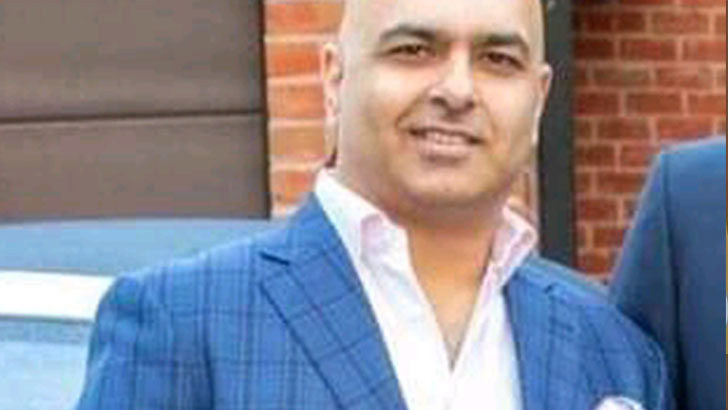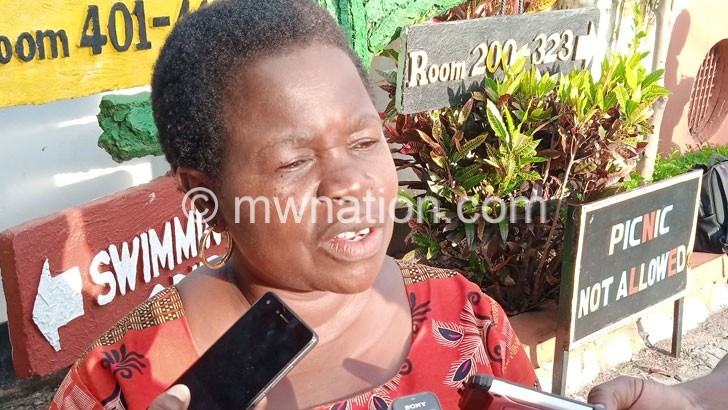ACB clarifies Sattar status
The Anti-Corruption Bureau (ACB) says Malawi-born businessperson Zunneth Sattar is a “person of interest” in its local investigations linked to his contracts with public entities in Malawi.
The bureau was responding to our enquiry on whether they intend to act on United Kingdom-based Sattar in connection with dealings related to so-called politically exposed persons in Malawi, some of whom the ACB has arrested.

In a written response, ACB principal public relations officer Egrita Ndala could not state if they intend to arrest Sattar or bring him to Malawi for trial, only saying he is a person of interest.
According to a lawyer in the Ministry of Justice, a ‘person of interest’ is someone who is under police radar, but may not necessarily be under investigation.
So far, the ACB has arrested four suspects, including former minister of Lands Kezzie Msukwa, former Inspector General of Police George Kainja and Deputy Commissioner in the Malawi Police Service Mwabi Kaluwa in connection with alleged transactions linked to the businessperson.

Sattar’s business associate Ashok Nair was also arrested in relation to the matter, but his arrest is being contested in court.
Said Ndala: “The Anti-Corruption Bureau arrested former Inspector General of Police Dr. George Kainja and Deputy Commissioner Mr. Mwabi Kaluba. Mr. Zuneth Sattar is a person of interest in the case.”
Apart from the ACB, the British National Crimes Agency (NCA) has also placed Sattar under investigation. But the NCA has not charged the businessperson.
Ndala, however, said the local arrests they have made are informed by the ACB’s own investigation.
She said: “The bureau has been conducting local investigations. The arrests that are taking place on this matter are based on the said investigations, which are still underway.”
The bureau currently has less than 30 prosecutors, who include paralegals, and just about 50 investigators.
Ndala acknowledged this shortage of personnel, saying they may have to hire private lawyers to fill the gap.
“We are also cognisant of the fact that the current cases that the bureau is handling are very complex requiring experienced litigators,” she said.
The ACB spokesperson added that subject to the availability of resources and assessment of respective cases, the bureau may hire a private lawyer to assist with the prosecution of the cases.
“The bureau is working with both internal and external prosecutors. This is on a case-to-case basis and as such, cannot determine how many external lawyers it will engage at any particular time.
“The new prosecutors will ease the workload on the prosecution although these may not be adequate looking at the number of cases that are in court and awaiting to go to court,” explained Ndala.
Law professor Garton Kamchedzera said even if Sattar faces trial in the UK, the ACB can still bring him to Malawi to face another trial since the two agencies are independent of each other and have different legal frameworks.
He argued: “The law in the UK and the law in Malawi are not exactly the same. So there they have different provisions. For example, I understand they are investigating him on the offence of bribing foreign officials.
“We do not have an offence such as that one and it would not apply to us. This could be one reason why the two investigating agencies [NCA and ACB] are collaborating so that they can handle the cases that are typically the UK and those that are typically Malawi separately.”
Kamchedzera added that while the two are independent of each other, they may need to work together as the two separate investigations can benefit both.
Another legal mind, Justin Dzonzi, also indicated that Sattar may have to face trial in Malawi for cases that he is alleged to have committed locally, while the UK may have to deal with him in accordance with their own laws.
He said contrary to the popular view that the ACB is dependent of NCA’s probe, the UK authority will have to depend more on ACB in their case.
“I kind of anticipate that the ACB may not necessarily wait for the UK case. In fact, it is the UK case that is kind of dependent on the Malawi case. This happened here,” he said.
According to a report the ACB presented to President Lazarus Chakwera recently, 84 people, from both the public and private sectors in Malawi, are alleged to have benefitted from Sattar’s generosity since 2020.





